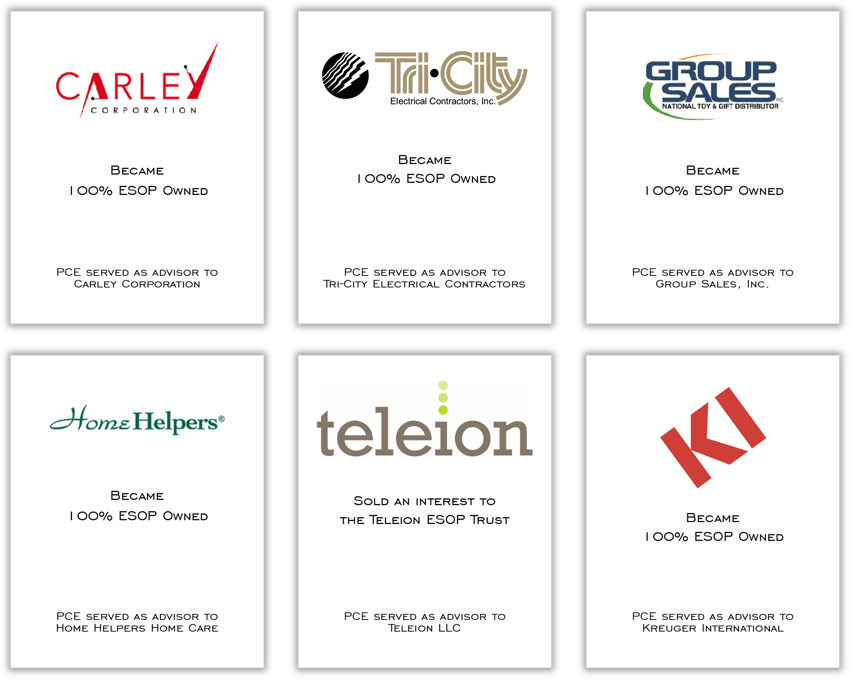Thinking of selling your business? An ESOP could be the smart exit strategy you haven’t considered. This guide walks through who should consider an Employee Stock Ownership Plan, key financial and cultural requirements, and the benefits—like tax advantages, legacy preservation, and employee engagement. Learn if an ESOP fits your company’s goals, industry, and ownership vision.
Curious about employee stock ownership plans (ESOPs) and whether they could benefit your company? An ESOP is a unique way to sell your business. It offers substantial tax advantages for your company and selling shareholders, can boost employee morale and productivity, and helps preserve your company’s legacy through an internal ownership transition. But with so many factors to consider, how do you know if an ESOP is right for you?
Who Should Consider an ESOP?
ESOPs offer a compelling approach to business ownership, blending strong financial benefits with a commitment to employee well-being. But as with any strategic decision, it’s crucial to assess whether an ESOP aligns with your company’s specific goals and circumstances. ESOPs work well in the following circumstances:
- Business owners planning retirement. If you’re nearing retirement and looking for a way to exit your business while preserving its legacy, an ESOP is an excellent option. It ensures continuity, rewards loyal employees, and can provide you with liquidity and favorable tax treatment.
- Businesses committed to employee ownership culture. ESOPs turn employees into employee-owners. This provides a competitive advantage for hiring and retaining employees. Furthermore, companies that commit to developing a culture of employee ownership outperform their peers.
- Owners seeking some If you need liquidity but want to stay involved with your company, an ESOP can be structured to allow you to sell a portion of your shares, providing you with needed funds while you maintain a role in the company.
- Companies with strong cash flow. ESOPs work well with companies that have positive cash flow. Startup and venture capital companies are typically not a good fit, as company cash flow is needed to support growth (i.e., there is no cash flow to fund the ESOP’s initial purchase of stock or future repurchase obligations).
- Owners with a low basis in stock. An ESOP sale is attractive for owners who have significant built-in capital gains. Owners can defer capital gains on the sale of their stock to an ESOP.
- Owners seeking to solidify their legacy. Business owners who want to preserve the legacy of their business often opt for an ESOP sale.
- Companies that are less desirable for strategic and financial buyers. The likelihood of closing an ESOP transaction is significantly higher than for an M&A transaction since the ESOP buyer (the ESOP trustee) is brought to the table.
What Industries Work with ESOPs?
ESOPs are present in virtually all industries. At PCE, we have helped many companies, ranging from manufacturing and professional services to construction and distribution, install ESOPs. This diverse applicability demonstrates the versatility and benefits of ESOPs across various sectors. Below is a list of a few companies whose ESOPs we have helped implement.

While ESOPs offer a compelling array of benefits, it’s important to approach them with a clear understanding of the hurdles involved. Some of the key considerations and challenges to be aware of before implementing an ESOP in your company include:
- Cost. Setting up an ESOP involves legal, financial, and administrative costs. It’s important to weigh these against the long-term benefits. However, cost is typically a fraction of the amount of taxes saved in any given year.
- Complexity. ESOPs can be complex to design and administer. Engaging experienced advisors is crucial.
- Employee education. To maximize the benefits of an ESOP, employees need to understand how it works and their role as owners.
- Owner education. Since ESOPs are less common than other ownership structures, some trusted advisors may not have extensive experience with them. Owners may also have heard negative anecdotes. There can be a significant learning curve when structuring and administering an ESOP.
Is an ESOP Right for You?
To determine if an ESOP is the right fit for your business, answer a few questions in the following areas:
Financial health and profitability
Financial stability is crucial for the success of an ESOP. Your company needs to generate sufficient profits to support the costs of establishing and maintaining an ESOP. The following questions will help assess your company’s financial health and profitability.
- Does your company generate an annual net profit before taxes of over $600,000 and an annual EBITDA of $2 million? Smaller companies have trouble with transactional and ongoing administrative fees (administrative fees are typically greater than $30,000 per year). The tax incentives for ESOPs are also less beneficial, as there is less taxable income in smaller companies. Companies with less than $2 million in EBITDA typically have limited debt capacity.
- What is your company’s debt capacity and tolerance for debt? ESOP transactions are often financed with debt. If liquidity is a priority, the company’s ability to secure debt financing will be an important consideration. For owners who are debt averse, seller financing for an ESOP transaction is a good option.
Employee and management readiness
The readiness of your employees and management team is critical for a successful ESOP transition. The following questions evaluate whether your team is prepared to take on ownership responsibilities and manage the business effectively.
- Does your company have at least 20 full-time, non-union employees? Having an employee base of at least 20 people provides diversification, so one employee leaving the company won’t cause a significant repurchase obligation.
- How strong is your management team? If your goal is to use an ESOP as an exit strategy, the strength of the successor management team is an important consideration. A sustainable and successful ESOP will require a strong and capable management team in place.
Take the Next Step
Considering an ESOP involves careful planning and a thorough understanding of your business goals and financial situation. At PCE, our expertise in ESOP transactions can guide you through the process, ensuring you make an informed decision that aligns with your vision for the future. Reach out to us to explore whether an ESOP is the right path for your company’s next chapter.
Kyle Wishing
Kyle Wishing is a Director at PCE and part of the firm’s ESOP Group. With over a decade of experience in valuation and ESOP advisory, he helps business owners and fiduciaries structure transactions that support long-term growth and succession goals.
Read Kyle's Full Bio


